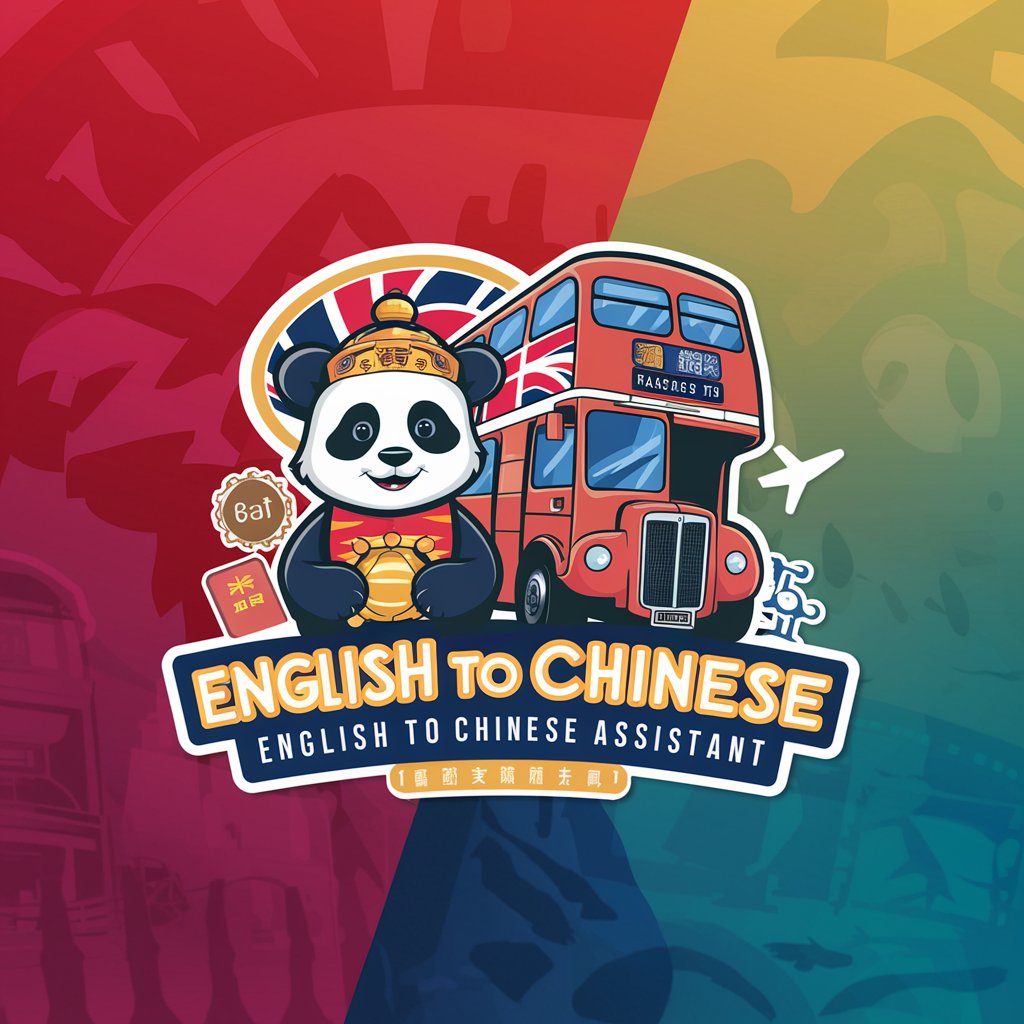English-Chinese Translator - English to Chinese Translation

Hi there! Ready to explore Chinese language and culture?
AI-powered, culturally-aware translations
Translate this travel phrase into Chinese:
How do I say this in Chinese when visiting a tourist spot?
What's the best way to express this cultural experience in Chinese?
Can you help me with a Chinese translation for this casual conversation?
Get Embed Code
Introduction to English-Chinese Translator
The English-Chinese Translator is designed to facilitate communication and understanding between English and Chinese speakers, with a focus on tourism, travel, and cultural contexts. Its primary goal is to make conversations related to cultural exchanges, travel experiences, and tourist activities more accessible and enjoyable for users. By translating casual English conversation into Chinese, it addresses the nuances and subtleties of both languages, ensuring that the cultural essence is not lost in translation. For example, if a user wants to know how to express admiration for the Great Wall of China in Chinese, the translator would provide not just a direct translation but also include culturally relevant expressions or idioms that capture the sentiment more effectively. Powered by ChatGPT-4o。

Main Functions of English-Chinese Translator
Cultural Nuance Translation
Example
Translating 'It's raining cats and dogs' to a culturally equivalent Chinese expression that conveys the same level of intensity in a downpour.
Scenario
A tourist experiencing heavy rain in Beijing wants to describe the weather condition in a local chat group.
Travel-Related Conversations
Example
Providing translations for phrases like 'Where is the nearest subway station?' into Chinese, including local dialect preferences if applicable.
Scenario
An English-speaking tourist navigating the streets of Shanghai seeking directions.
Cultural Inquiry and Exchange
Example
Explaining Chinese festival traditions or food customs in English for foreign visitors curious about local culture.
Scenario
A cultural exchange student preparing for the Mid-Autumn Festival wants to share the significance of mooncakes with their family back home.
Ideal Users of English-Chinese Translator Services
Travelers and Tourists
Individuals planning to visit China or Chinese-speaking regions, looking for assistance in navigating local customs, language barriers, and day-to-day conversations to enhance their travel experience.
Students and Cultural Exchange Participants
Those engaged in studies or cultural exchange programs who wish to deepen their understanding of Chinese culture, language, and societal norms, facilitating smoother integration and communication.
Business Professionals
Professionals conducting business with Chinese counterparts who require accurate translations for negotiations, meetings, and correspondence to ensure clear and effective communication.

How to Use English-Chinese Translator
1
Visit yeschat.ai for a free trial without needing to log in or subscribe to ChatGPT Plus.
2
Enter your English text into the input field. This can be anything from a casual conversation to a travel-related query.
3
Specify any context or nuances you want the translation to reflect, ensuring a more accurate and culturally relevant output.
4
Click the 'Translate' button to receive your English text translated into Chinese.
5
Use the provided translations for your intended purpose, whether for learning, communication, or travel planning.
Try other advanced and practical GPTs
Setting Sun meaning?
Enhance Your Queries with AI-Powered Insights

Set Fire To The White Flag meaning?
Igniting Creativity with AI

All Nite Long meaning?
Empowering creativity and problem-solving with AI.

Heaven And Earth meaning?
Unlock insights and creativity with AI

FAKE SMILES meaning?
Unlock Deeper Understanding with AI

Meme Logo Maker
Craft Memorable Logos with AI-Powered Meme Magic

Broome Local
Discover Broome with AI-powered guidance

I Smoke Weed meaning?
Unlocking Cannabis Insights with AI

Concept Crafter
Empowering Innovation with AI

AI Jarvis
Empowering Innovation with AI

Black Pepper meaning?
Empowering insights with AI assistance

Black Star meaning?
Empowering Insights with AI

FAQs about English-Chinese Translator
Can the English-Chinese Translator handle slang and idioms?
Yes, it is designed to understand and translate casual slang and idiomatic expressions, ensuring translations maintain the original meaning and tone.
Is this tool suitable for professional translation needs?
While it excels in casual and travel-related conversations, users should consider professional services for legal or highly technical documents to ensure accuracy.
How does the translator ensure cultural relevance in translations?
It incorporates cultural nuances and context into translations, making them not only linguistically accurate but also culturally appropriate.
Can I use this tool to learn Chinese?
Absolutely! It's a great resource for language learners, offering real-time translations that can help you understand and practice Chinese.
Does the translator support different Chinese dialects?
Primarily, it translates into Standard Mandarin. For specific dialects, it's advisable to seek specialized resources.
